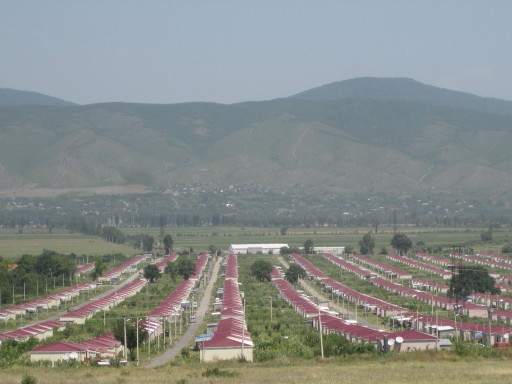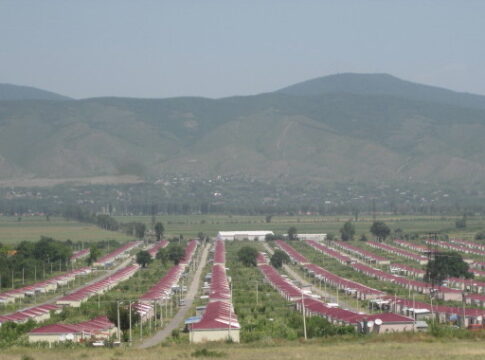Elections in South Ossetia , not long ago. Who was voting? And for which offices and what mandates, in an area, that under international laws is still considered Georgia. Nobody should be surprised, that the majority of people now living there voted for Russian as their official language. But it shows, who is gaining influence in the area.
Thousands of people in South Ossetia had to flee during the war between Georgia and Russia in August 2008. After the conflict, they were not allowed to go back home. Many of them still live in refugee camps, some in the north, many in the south. Living conditions are very poor, there are no jobs in most areas, little food, and not enough schools for the children.
Those, who were lucky, could move into one of the houses in villages set up by the international community.
But families were split, or even scattered all over the country, in a region, were the family is the most important support for everyday life. It substitutes for all services that are set up by the state in other areas.
Since the end of the war in 2008 South Ossetian borders are closed and strictly guarded by armed soldiers. Who is in, has to stay in, who is out, has to stay out. The six points agreement signed by the conflict partners agreed that both conflict partners would draw their troops back to where they were before the war. But now, both sides interpret the treaty in different ways.
What meaning can a vote have after driving the local population out? Why a vote behind closed borders? Why not open the borders to let people go back to where they came from? I have talked to very many refugees of different areas. They know, that they have lost their houses, but they are ready to build a new one. They want to go back to their soil, no matter if they are Ossetians, Georgians or other ethnic groups. Again and again refugees talk about their peaceful neighborhoods, about good friendship between villages of different ethnic backgrounds.
Friendship or tolerance of people living together in South Ossetia, it seems, was much better than politics like them to be. But here, it seems, the question is not about the well-being for people but about power and influence and politics. And about Caspian Energy and oil and gas pipelines for Europe, crossing through here.
Also look at http://www.tagesspiegel.de/politik/die-unsichere-grenze-von-suedossetien/1964988.html by Birgit Wetzel


